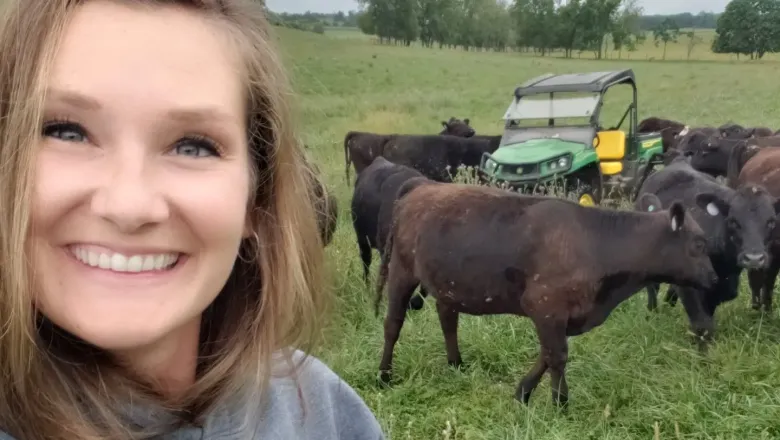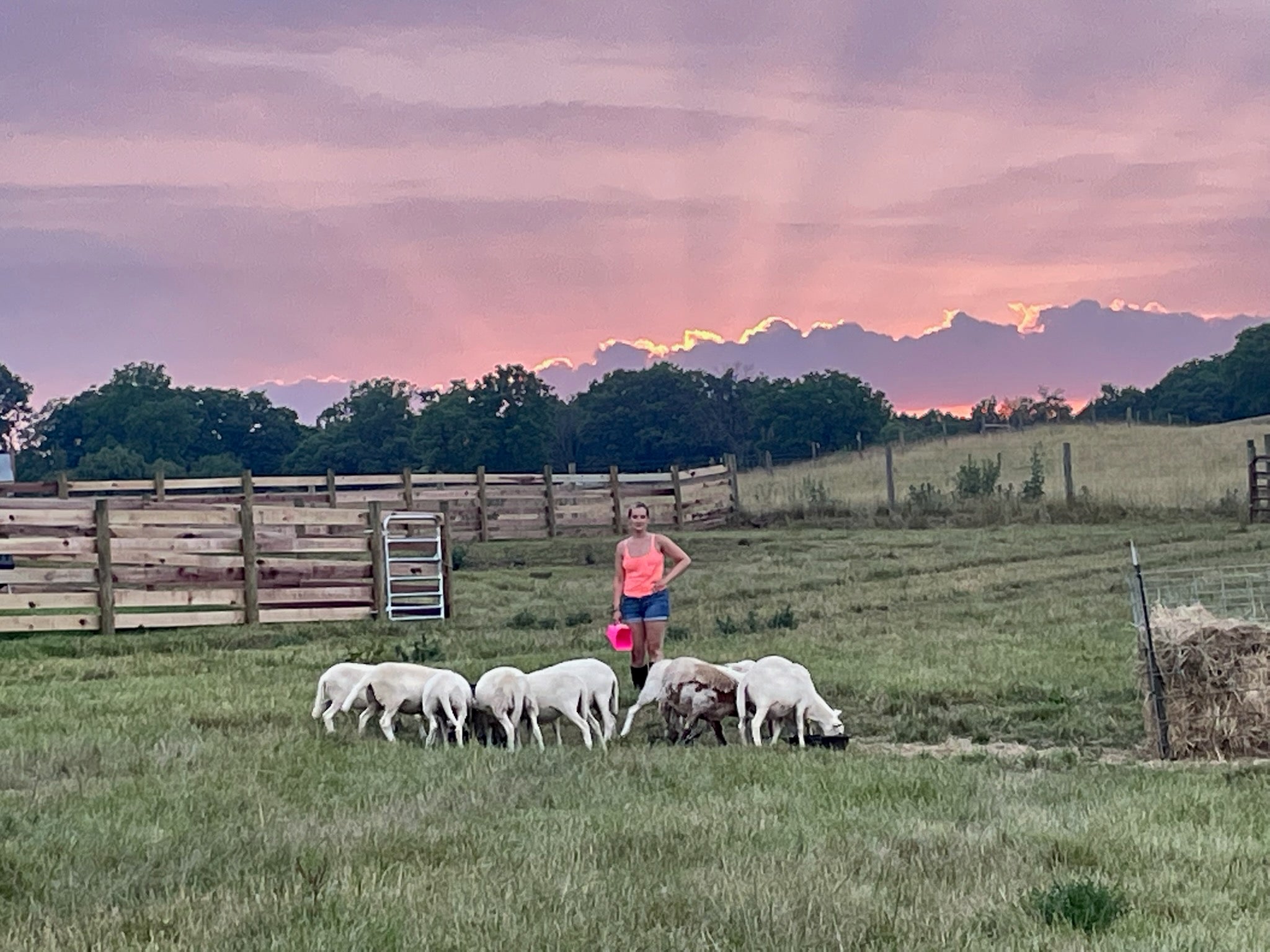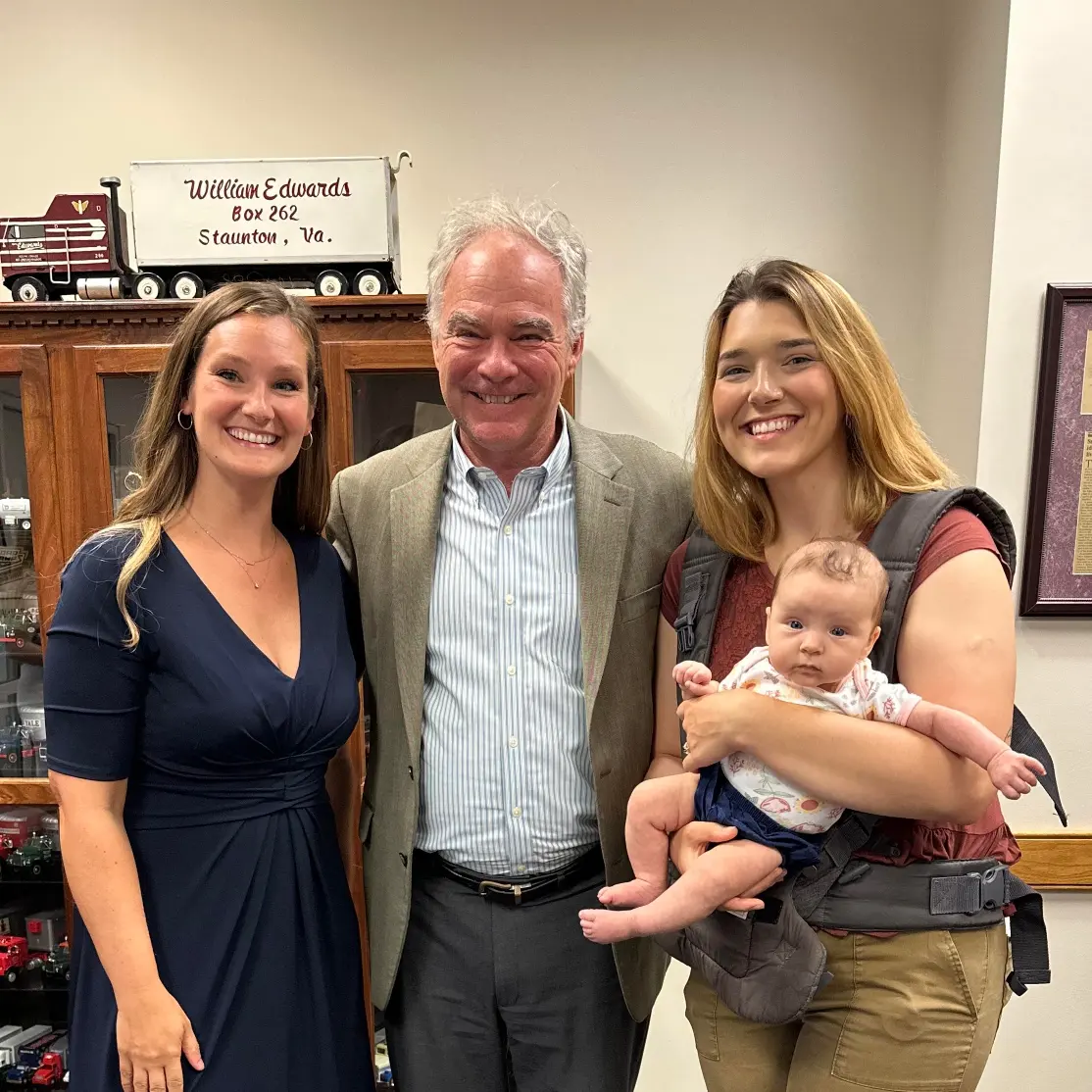Bridging the Disconnect Through Advocacy with Morgan Slaven

Agricultural Advocacy
Young, Beginning, Small & Veteran Farmers
Farm Credit is known for building relationships with our customer-owners; however, our mission and commitment to the rural communities we serve extend our borrower relations. The Farm Credit System was established by Congress in 1916. As a government-sponsored entity, sharing the Farm Credit story and fostering strong relationships with our lawmakers is crucial to our future and the success of the the Farm Credit System. We build and maintain those critical relationships by visiting our representatives in Washington, DC, hosting farm tours for our legislators and participating in events to increase lawmakers' familiarity with our impact in the rural communities we serve.
As a cooperative and champion for the agriculture industry and our rural communities, Farm Credit believes in the value of advocacy and education. In 2024, as Congress addresses the renewal of the Farm Bill, our collective support of the farmers and communities we serve is even more important. Morgan Slaven is a customer-owner of Farm Credit of the Virginias and member of our Young, Beginning and Small Farm Advisory Committee. She is also a sixth-generation farmer and the owner/operator of Mercy Mill Farms in Weyers Cave, Virginia. Morgan was active in FFA at the local and state level, and serves as the manager of governance and executive affairs for Shenandoah Valley Electric Cooperative. We took some time to chat with Morgan about her passion for agricultural advocacy and we couldn’t agree with her more!

Why is advocacy in agriculture so important?
"The statistics make it pretty clear how disconnected consumers are from farming and rural issues: nearly 99% of the population is not involved in production agriculture. The average American is at least three generations removed from the farm. The vast majority of legislators that represent Virginia are from urban communities. Those not involved in agriculture are voting on issues that impact farmers, enforcing laws and regulations that we must live with, and wield a purchasing power that influences the demand for the products our livelihood depends on. With that in mind, I believe advocacy is a critical responsibility for all of us involved in the farming community. Farmers of my generation are facing unprecedented industry issues. Consumers and political decision makers need to know how these issues are going to impact food, fiber and fuel for us all, and the only way to do that is for us to engage with them."
Why are advocacy and engagement with political groups especially important during a Farm Bill year?
"Of all the hot political topics that can polarize people, there is one thing we can all agree on: consumers should have access to wholesome, affordable and safe food. Our job as advocates for the industry is to help our representatives navigate the misinformation surrounding this topic in order to open up a pathway for farmers and industry partners to keep that statement true. For those who don’t have experience in lobbying, this can seem especially intimidating, and probably the core reason why farmers don’t engage in advocacy work. That is why it’s important to engage (or at least pay membership dues) to a political advocacy group. They have paid staff who take care of the heavy lifting of understanding the legislative process and making the connections with representatives. However, the most critical piece of their work can only be provided by farmers: the telling of our story and experiences. The Farm Bill is a special opportunity for farmers to carve out a space for special programs and funding that tackle the major issues that could potentially disrupt our country’s food supply. It’s especially important for farmers to be engaged during this time as the Farm Bill only comes up for discussion every five years."

How do you advocate for agriculture? How did you get started?
"My advocacy experience actually started when I was a Virginia FFA Association state officer. As state president, part of my responsibility was to represent the association at political opportunities. I visited my congressional representative’s offices and our state capitol for the first time in the blue jacket. My time in this role also gave me a youth representative seat on the Virginia Agribusiness Council and introduced me to Virginia Farm Bureau grassroots programs – of which I’m still an engaged member today.
My personal approach to advocacy is to ignore party lines. It doesn’t matter who the congressional representative or state legislator might be or which side of the aisle they sit on, if I have an opportunity to talk with them about the agriculture industry, I take it. Last summer, I was invited to participate in two Farm Bill round table discussions: one was with a Republican congressman and the other with a Democratic senator. Both conversations were productive and engaging – and contact information was exchanged. It’s hard to imagine this in a world where everything seems so polarized, but we actually don’t have to agree on 100% of all political issues in order to make progress for our industry.
As a young farmer, one of my biggest concerns is that those of my generation (and younger) don’t see the same value in membership organizations as the generations before us. According to the Department of Labor, by 2025, Millennials and Gen Z will account for over 75% of the workforce; however, only 29% of association members are from these younger generations (according to a January 2023 article by Velir). I try to share my advocacy experiences on social media so that my farming peers can see how easy it is to engage. My generation MUST see the responsibility we have to step up and be part of these organizations. If not, who will be speaking on our behalf in 10-20 years?"
You recently joined the YBS Advisory Committee here at Farm Credit of the Virginias, what motivated your participation with the committee?
"Any opportunity I have to volunteer as a spokesperson for our industry (especially for young or beginning farmers and our particular challenges), I’m going to take it. As I mentioned before, advocacy groups like those through Farm Credit, Farm Bureau or commodity associations are able to build stronger cases for the issues they are presenting to legislators if they can bring willing volunteers from the farming community with them to share their stories. Moreover, being part of these types of advisory committees allows me to share input from my farming peers to make programs and products stronger for those of us just starting out in the business."
Is there anything else you’d like to share?
"I know it is tough to leave the farm to participate in these types of activities. Don’t forget that social media is a powerful tool in engaging with legislators right from the tractor seat. Being a dues-paying member of these advocacy organizations also helps support their mission in representing you on the hill and at the state capitol when you aren’t able to represent yourself."
Thanks to Morgan for her engagement, passion and advocacy. Want to get involved in our advocacy efforts? Join Farm Credit’s Grassroots Advocacy alerts and help us Stand Up for Agriculture! Text “CREDIT” to 52886 to become a Farm Credit Advocate and be notified when there are opportunities to take action on important issues in agriculture.
This story was originally published in the June 2024 Leader Magazine. Access the full magazine (digital version) HERE.